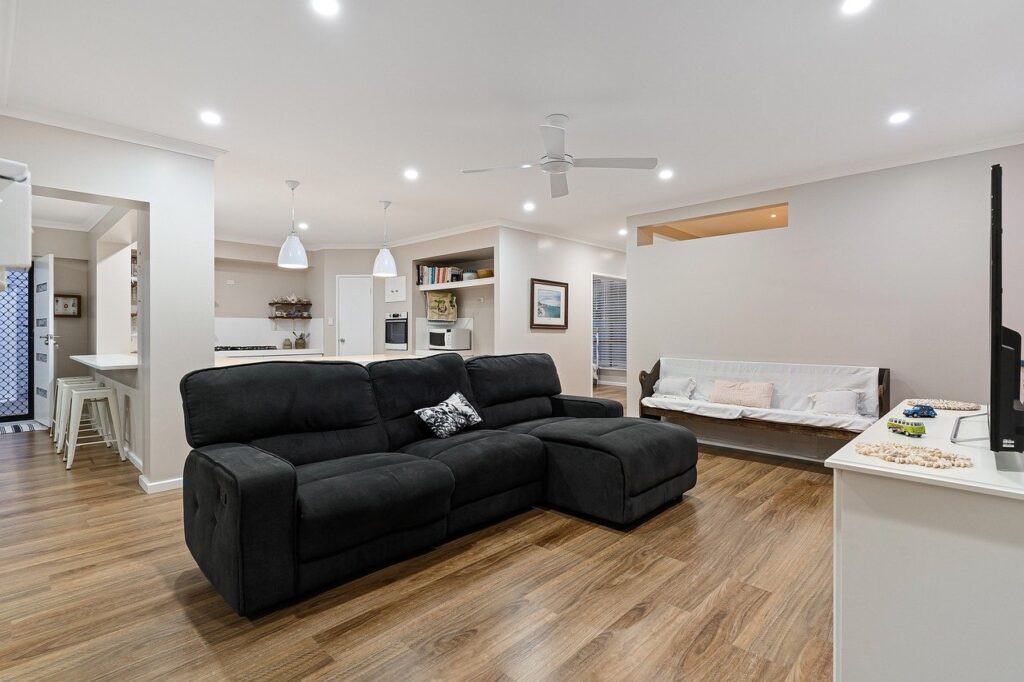Owning a villa in Koh Samui is a dream for many, offering a tropical paradise with the added bonus of a potentially lucrative long-term rental business. As more tourists and expatriates seek the beauty and tranquility of Koh Samui for extended stays or as their permanent home, renting out your villa can provide a reliable source of income. But before stepping into the rental market, it’s important to understand the tax implications and fiscal obligations tied to managing a rental property in Thailand.
Beyond simply maintaining the villa and securing tenants, there are significant responsibilities related to managing your rental income taxes. Ensuring compliance with local tax regulations is crucial to avoiding penalties and ensuring the long-term success of your rental venture. This article explores the key tax implications of renting out your villa, including an overview of Thai rental tax laws, necessary registrations, and potential deductions. By gaining a solid understanding of your tax obligations, you’ll be better equipped to manage your property rental smoothly and legally, securing your investment and future profits.
Understanding Thai Rental Tax Laws
Thailand has specific tax laws governing the income earned from rental properties, and it’s essential for villa owners in Koh Samui to familiarize themselves with these regulations. Failing to comply can result in legal issues or significant financial penalties. When renting out your villa, the income generated from long-term rentals is subject to personal income tax in Thailand, meaning you must declare this income to the Thai Revenue Department.
Thailand operates on a progressive tax system, which means that the more rental income you earn, the higher the tax rate you’ll be required to pay. Therefore, it’s crucial to accurately report your rental income and file the necessary tax returns to remain in full compliance with local laws. By understanding how these tax laws apply to your rental business, you can avoid complications and manage your property in a way that’s both profitable and legally sound.

Personal Income Tax on Rental Income
As a villa owner, your rental income will be added to any other income sources you have within Thailand. The total income is then subject to personal income tax, which follows a progressive rate in Thailand. The tax rates range from 0% to 35%, depending on the amount of annual income you report.
For instance, if your combined income (from rentals and other earnings) is relatively low, you may fall into one of the lower tax brackets. However, if your rental income is substantial, you could find yourself in a higher tax bracket, leading to an increased tax liability. This is why it’s essential to maintain accurate records of your rental earnings as well as any applicable deductions, such as maintenance costs or property management fees, which can help reduce your taxable income.
Additionally, non-resident villa owners are often subject to withholding tax on their rental income. This tax is typically deducted at the source, meaning a portion of the rental income is withheld by the tenant or agent and submitted directly to the Thai government on your behalf. Given the complexity of Thai tax laws, it’s advisable to work with a tax professional who can help you navigate the requirements and minimize your tax burden while ensuring full compliance.
Value Added Tax (VAT) for Rental Properties
In some cases, villa owners may also need to account for Value Added Tax (VAT), depending on the amount of rental income they generate. VAT in Thailand is currently set at 7%, and it applies to goods and services, including property rentals, if the rental income exceeds 1.8 million THB per year.
As a villa owner, if your annual rental income surpasses this threshold, you will need to register for VAT with the Thai Revenue Department. Once registered, you will be required to include VAT in your rental pricing structure, meaning your tenants will effectively pay the additional 7% as part of their rent. It’s important to ensure you remain VAT compliant by regularly filing VAT returns and keeping accurate records of all relevant transactions.
For many long-term rentals, VAT does not apply because the income typically falls below the 1.8 million THB threshold. However, if you anticipate reaching this level of income, it’s best to prepare in advance and understand the VAT requirements. Staying proactive in your tax planning helps you avoid penalties and ensures your rental business operates smoothly.
By being aware of these tax obligations, villa owners in Koh Samui can manage their long-term rentals more effectively and avoid potential legal or financial setbacks. Understanding and complying with Thai rental tax laws will help you run a successful and compliant rental operation.
Deductions and Allowances for Rental Income
One of the significant advantages of renting out your villa in Koh Samui is that you may qualify for various tax deductions. These deductions can help reduce your taxable income, which in turn lowers the total amount of tax you’ll owe. However, to claim these deductions, it’s crucial to maintain accurate financial records and receipts for all eligible expenses. Deductions can make a considerable difference in your overall tax liability, so it’s important to understand what you can deduct and how it applies to your rental income.

Maintenance and Repair Costs
As a villa owner, one of the key deductions you can claim is for maintenance and repair costs. Regular upkeep is essential for maintaining the condition of your property, and many of these expenses are tax-deductible. This includes costs for repainting, fixing broken fixtures, replacing damaged appliances, or conducting general wear-and-tear repairs that are necessary to keep the property habitable for tenants.
For example, if you have to repair a leaky roof or fix a malfunctioning air conditioning system, these expenses can be deducted from your rental income. By keeping detailed receipts and documentation for each repair, you can substantiate these expenses during tax filing.
However, it’s important to differentiate between regular maintenance and capital improvements. While repairs that restore the property to its original condition are deductible, major renovations or upgrades—such as installing a new kitchen, adding a pool, or expanding the villa—are considered capital improvements. These are not immediately deductible as they add long-term value to the property, but they can potentially be depreciated over time.
Property Management and Marketing Fees
Another significant deduction for villa owners is the cost of property management services. If you hire a property management company to handle the day-to-day operations of your rental villa—such as coordinating repairs, screening tenants, or overseeing rent collection—the associated fees are considered deductible expenses. This is especially useful for villa owners who may not live in Koh Samui full-time and rely on professional management to ensure their rental property is well-maintained.
For example, if you pay a management company a monthly fee to handle tenant communications and upkeep, these management fees can be deducted from your taxable income. This deduction helps offset the costs of running a smooth and professional rental operation.
In addition to management fees, expenses related to marketing your villa are also eligible for deduction. Whether you pay for advertising on popular rental platforms, hire a photographer to take professional photos of your property, or cover the costs of listing fees, these expenses are directly related to generating income from your rental and can be deducted from your taxes.
By keeping detailed records of these marketing expenses, you can ensure that you claim all eligible deductions, ultimately reducing your tax liability and improving the profitability of your long-term villa rental in Koh Samui.
Understanding and taking advantage of these deductions and allowances allows villa owners to minimize their tax burden and maintain a profitable rental operation.

Registering Your Villa for Long-Term Rentals
Before you start renting out your villa in Koh Samui, it’s critical to ensure that you are properly registered with local authorities. Failure to register can lead to penalties, fines, or even the inability to legally rent out your property. As a foreign villa owner, navigating the requirements to stay in compliance with Thai property laws can be complex, but it is essential for operating a legitimate and smooth rental business.
Ensuring your villa is properly registered for long-term rental purposes protects you from potential legal complications and allows you to rent your property with peace of mind.
Foreign Ownership and Tax Obligations
While foreigners can legally own property in Thailand, there are certain restrictions—particularly around land ownership. However, villas built on leased land or within condominium developments are common for expatriates looking to own property in Koh Samui. If you plan to rent out your villa, it’s important to ensure that your ownership structure complies with Thai property laws.
In addition, as a villa owner, you must register your property for long-term rentals with the local municipality. This process ensures that your rental activities are recognized and taxed appropriately. Alongside registration, all rental agreements must comply with Thai regulations, meaning you need to provide tenants with a formal lease that clearly outlines both parties’ responsibilities. A well-drafted lease not only protects the tenant but also ensures that you, as the owner, have legal recourse if issues arise.
Complying with these requirements safeguards you from legal issues and establishes a professional approach to long-term property rentals. It’s essential to stay informed about local laws, especially if you’re managing a rental property as a foreign owner.
Working with a Tax Professional
Understanding the intricacies of tax obligations and compliance for renting out your villa in Koh Samui can be a daunting task, especially if you are unfamiliar with Thai tax law. The potential for missteps is significant, and it’s easy to overlook critical details when trying to manage everything on your own. This is why many villa owners choose to work with a tax professional who specializes in property rentals.
A tax advisor can guide you through the complex process of registering your rental business and ensure that you are fully compliant with local regulations. They can help you understand how to correctly declare your rental income, ensure you are maximizing deductions, and identify ways to minimize your tax liability. Moreover, they can assist with filing tax returns, handling VAT (if applicable), and ensuring that all financial documentation is up-to-date and accurate.
By partnering with a tax professional, you can focus on managing your villa and maintaining relationships with tenants, knowing that your tax affairs are in safe hands. Additionally, having an expert by your side ensures that you’re aware of any changes in tax laws or property regulations, which is essential for staying compliant and protecting your investment in the long term.
For foreign villa owners, working with a tax professional not only simplifies the process but provides reassurance that all financial aspects of the long-term rental business are handled correctly and efficiently.
Heveatecture’s Commitment to Supporting Villa Owners with Legal and Tax Compliance
At Heveatecture, we understand that managing a long-term rental property in Koh Samui involves more than just the physical aspects of construction and maintenance. Our clients often need guidance on navigating the complexities of Thai property laws and tax obligations. That’s why we go beyond providing architectural and construction services; we also connect our clients with a trusted network of law firms and accounting experts.
Expert Legal and Financial Support
Through our extensive partnerships with experienced lawyers and tax professionals, we ensure that our clients have access to the best advice for staying compliant with Thai regulations. Whether it’s registering your villa for long-term rentals, drafting legally sound rental agreements, or managing tax filings, our network of professionals is equipped to handle every aspect of the legal and financial process.
By offering our clients this additional support, Heveatecture helps make the experience of renting out a villa in Koh Samui as seamless and stress-free as possible. With the right legal and financial guidance, you can focus on maximizing the value of your property while staying fully compliant with all relevant laws.
Conclusion
Renting out your villa in Koh Samui can be a lucrative opportunity, but it also comes with important tax implications and fiscal responsibilities. From understanding Thai rental tax laws to taking advantage of deductions for maintenance and property management, staying informed and compliant is crucial for avoiding legal issues and maximizing your rental income.
By ensuring that your villa is properly registered for long-term rentals and maintaining transparent rental agreements, you safeguard both yourself and your tenants. Additionally, seeking the guidance of a tax professional can help navigate the complexities of Thai tax law, making it easier to stay compliant and manage your tax liabilities effectively.
With the right preparation, understanding of tax obligations, and professional support, you can ensure a smooth, profitable, and legally sound rental operation in Koh Samui.

FAQ
Rental income in Thailand is subject to personal income tax, with rates ranging from 0% to 35% based on total annual income.
If your rental income exceeds 1.8 million THB annually, you are required to register for Value Added Tax (VAT) and charge an additional 7% on rental prices.
Yes, regular maintenance and repair costs can be deducted from your rental income. However, major renovations or improvements may not qualify.
Yes, you must ensure that your villa is properly registered for long-term rentals with the local authorities to comply with Thai law.
Non-resident villa owners may be subject to withholding tax on rental income, which is deducted at the source.
Failure to declare rental income can result in penalties, fines, or legal action from the Thai Revenue Department.
Common deductions include maintenance costs, property management fees, and marketing expenses related to the rental of your villa.
Yes, a formal lease agreement is required by Thai law, outlining the terms of the rental and protecting both the tenant and owner.
Yes, as a foreign owner, you can rent out your villa legally, provided you comply with Thai property laws and registration requirements.
It is highly advisable to work with a tax professional who understands Thai tax laws to ensure compliance and optimize your tax strategy.
